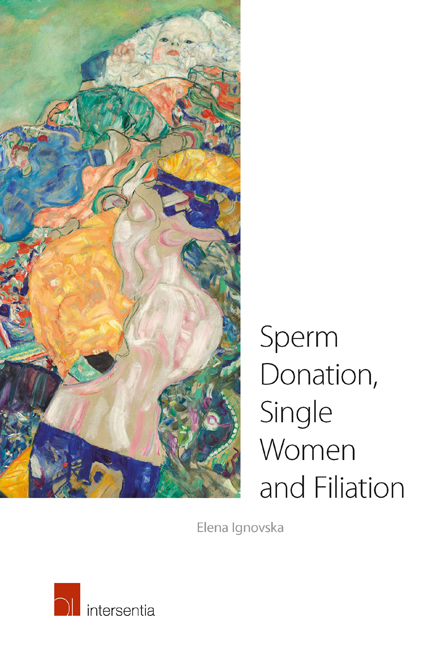Book contents
- Frontmatter
- Dedication
- Foreword
- Contents
- List of Abbreviations
- Introduction
- PART I MAPPING THE TERRAIN FROM AN INTERDISCIPLINARY AND INTERNATIONAL PERSPECTIVE
- Chapter 1 Terminology
- Chapter 2 International Regulations
- Chapter 3 Overview of the National Regulations in Ten European Countries
- PART II THE LEGAL, ETHICAL AND SOCIOLOGICAL POSITIONS OF THE PARTICIPANTS
- PART III LEGAL WAYS OF ESTABLISHING FATHERHOOD
- References
Chapter 3 - Overview of the National Regulations in Ten European Countries
from PART I - MAPPING THE TERRAIN FROM AN INTERDISCIPLINARY AND INTERNATIONAL PERSPECTIVE
Published online by Cambridge University Press: 12 December 2017
- Frontmatter
- Dedication
- Foreword
- Contents
- List of Abbreviations
- Introduction
- PART I MAPPING THE TERRAIN FROM AN INTERDISCIPLINARY AND INTERNATIONAL PERSPECTIVE
- Chapter 1 Terminology
- Chapter 2 International Regulations
- Chapter 3 Overview of the National Regulations in Ten European Countries
- PART II THE LEGAL, ETHICAL AND SOCIOLOGICAL POSITIONS OF THE PARTICIPANTS
- PART III LEGAL WAYS OF ESTABLISHING FATHERHOOD
- References
Summary
GENERAL OVERVIEW
THE RIGHT OF SINGLE WOMEN TO USE ART
From the information gathered by the International Federation of Fertility Societies Surveillance 2010, single women are allowed access to ART as a principle rule covered by statuses or guidelines in:
– EU Member countries: Belgium, Bulgaria, Denmark, Estonia, Finland, Greece, Hungary, Spain and the United Kingdom.
– Acceding EU countries: Iceland, Montenegro and Serbia.
– Other countries in the world: Canada, Israel, Russia, South Africa, USA, Belarus, Ghana, India, New Zealand, South Africa, Ukraine and Venezuela.
Single women have access to ART even though it is regulated neither by statutes nor by guidelines in: the Dominican Republic, Israel, Jamaica, Mexico, Nigeria, Uganda and Uruguay.
A rather political value was given to the issue of single women's access to ART in Slovenia where it was decided by referendum on 17 June 2001. After long debates, Slovenians decided that single women should not have access to ART with 72.36% of voters opposing and only 26.38% supporting it.
From the European countries analysed below, single women cannot exercise their reproductive right by sperm donation in Italy, France, Germany and Sweden. They can apply for sperm donation and eventually conceive a child only under particular circumstances in the Republic of Macedonia, Republic of Croatia and Republic of Serbia. Single women are allowed access to ART without particular conditions and on equal grounds to everybody in the Netherlands, Belgium and the United Kingdom.
THE RIGHT OF THE CHILD TO KNOW THE IDENTITY OF THE DONOR
Identifying information regarding the donor can be revealed (regulated by statutes or guidelines) in:
– EU Member countries: Germany, the Netherlands, Slovakia, Sweden, Finland and the United Kingdom.
– Acceding EU countries: Montenegro.
– Other countries in the world: Brazil, Australia, Hong Kong, Argentina, New Zealand, the USA and Vietnam.
According to the Steering Committee of Bioethics, identifying the donor, initiated by the child, is also possible in Austria, Czech Republic, Estonia, Greece, Norway, Spain, Iceland, Georgia, Switzerland and Canada. Identifying information can also be available for the court only in Latvia, Russia, Slovakia, Ukraine and Israel.
Identifying information regarding the donor can be revealed (even though regulation does not exist in statutes and/or guidelines) in Cameroon, Columbia, the Democratic Republic of Congo, El Salvador, Jamaica, Peru, Togo and Uruguay.
- Type
- Chapter
- Information
- Sperm Donation, Single Women and Filiation , pp. 81 - 112Publisher: IntersentiaPrint publication year: 2015

